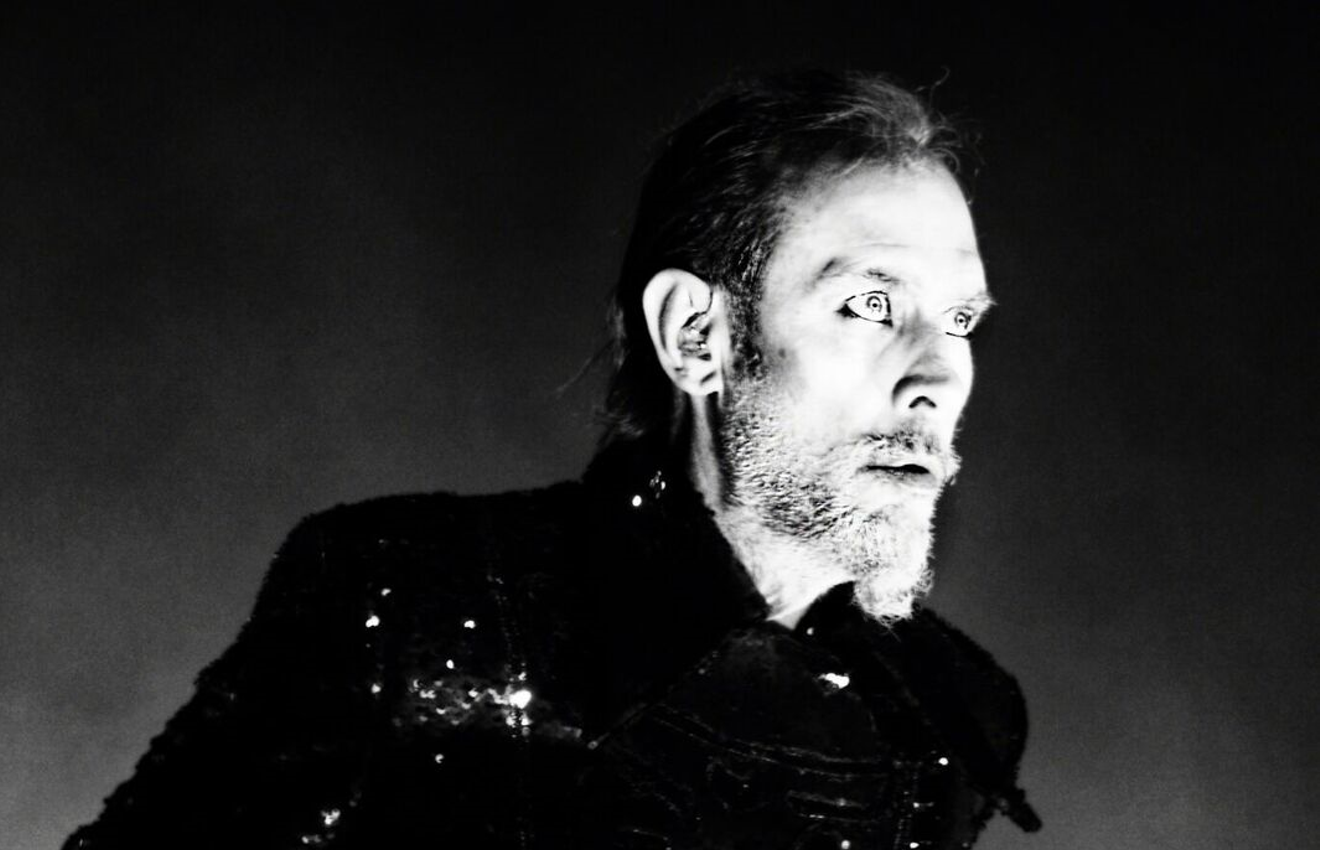In a sense, it’s true. His music has never resided atop the Billboard charts. He has never won a Grammy. He never won a TV singing contest performing covers.
But maybe he’s a different kind of star. After all, he’s known throughout the alt music world; he has legions of fans from Hamburg to Hollywood; and he and his band are arguably responsible for one of the most innovative music and art movements in recent history: the subculture of goth. By those points alone, if you ask if Peter Murphy is a superstar, we’d have to say, “Damn straight,” even if he doesn’t feel it himself.
Superstar or not, Murphy is revisiting his former band’s groundbreaking debut album, In the Flat Field, with the appropriately titled “Peter Murphy: 40 Years of Bauhaus Tour,” which stops in Miami at the Ground Wednesday, February 6.
Murphy and his childhood school pals in Bauhaus — brothers David J (bass) and Kevin Haskins (drums) as well as Daniel Ash (guitar) — were inspired by the glam rock of David Bowie and early T-Rex, the Velvet Underground’s art rock, and even the synth forefathers in Kraftwerk.
“I am sure any artist feels satisfied to a certain extent of an album, that this work you are doing is very exciting to you, and it may not be for anyone else,” he notes on making In the Flat Field. “That kind of forward-looking ‘American dream’ kind of stuff. It wasn’t about making our future; it was making it now. There was no America’s Got Talent or X-Factor bullshit at all, which is kind of a mutation, really, of life.”
Part of the charm and mystique about a frontman like Murphy is his appearance, devoid of props and crazy outfits. His stage presence relies on his piercing eyes, high cheekbones, and foreboding aura. During any performance, he emerges as the unabashed center of attention.
“When I looked in the mirror and saw myself,” he says, recalling the moment he decided to become the focal point of the band, “it was this glorious moment of narcissism, and I went, ‘That’s killer.’”
Recorded between December 1979 and July 1980, In the Flat Field was released in November 1980. Of the 17 songs recorded, nine would make the initial final cut. What would be the song fans forever would connect with the band, the hauntingly cool debut single “Bela Lugosi’s Dead,” was recorded in August 1979. As Murphy claims now, after 40 years, the song as originally written was much different.
“What they don’t realize is that it’s called ‘Bela Lugosi’s Dad,’” Murphy says with a laugh, “and I don’t say ‘undead.’ I say, ‘I’m Dad, I’m Dad, I’m Dad.’ If they hadn’t made the mistake with the lyrics, it wouldn’t be what it is today. It was originally written as ‘Bela Lugosi’s Dad,’ you see.”
On In the Flat Field, which didn’t feature “Bela,” all four band members created truly new music that would shatter preconceptions of press and fans alike. David J’s bass and Kevin Haskins’ rhythm section are featured throughout rather than serving as a simple backbeat. In Murphy’s instantly iconic vocal style, one can hear tinges of Iggy Pop’s raw power and David Bowie’s glam flair along with a bit of his own macabre menace, which is especially present on key cuts like “Double Dare” and “God in an Alcove.” Add to that the crafty, spindly guitar work of Daniel Ash, and it’s evident each player exists on his own as much as they do a cohesive unit.
In the Flat Field was the first LP released by 4AD, originally intended as a “testing ground” imprint of the indie Beggars Banquet label and now, thanks in part to bands like Bauhaus, even
“We were definitely brave,” says Murphy. “Every song is created from nothing, but you don’t have to make the song sound like everything else. And that was really our m.o.”
Bauhaus' breakup in summer 1983, shortly before the release of its fourth LP, Burning From the Inside, and its standout numbers “She’s in Parties” and “Who Killed Mr. Moonlight,” allowed Murphy to open his solo wings and fly. The first full band reunion came in 2008, with a fifth album, Go Away White, and a tour.
With David J, touring drummer Mark Slutsky, and guitarist Mark Thwaite — who played on Murphy’s 2011 album, Ninth — the singer feels he has a very strong band to produce a live Bauhaus tour.
“We’ve become very close again. It’s a joy to work again because we are from Bauhaus and it does have a genuine Bauhaus strain.”
Peter Murphy: 40 Years of Bauhaus. With David J, Desert Mountain Tribe, and Vinsantos. 7 p.m. Wednesday, February 6, at the Ground, 34 NE 11th St., Miami; thegroundmiami.com. Tickets cost $35 to $200 via Ticketfly.











